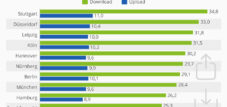The consulting industry's involvement in the multi-billion-euro project: How Stuttgart 21 became a money-printing machine and a source of sustained profitability for consultants.
Xpert pre-release
Language selection 📢
Published on: November 25, 2025 / Updated on: November 25, 2025 – Author: Konrad Wolfenstein

The consulting industry's involvement in the multi-billion-euro project: How Stuttgart 21 became a money-printing machine and a source of sustained profitability for consultants – Image: Xpert.Digital
Between exploding costs and a flood of expert opinions – Stuttgart 21 as a business model for consulting firms
When public failure mutates into a private business model
The Stuttgart 21 rail project has long since become more than just a symbol of Germany's infrastructure woes. It has become a prime example of how chronic delays, exploding costs, and constant planning uncertainty can create a lucrative, long-term contract for the international consulting industry. While taxpayers pump billions upon billions into a project whose completion is continually pushed further into the future, a parallel industry flourishes, profiting from precisely this dysfunction. The major consulting firms have long since established themselves as indispensable partners in large-scale public projects; their expert opinions, analyses, and audit reports are a standard feature of every crisis meeting, every supervisory board meeting, and every political justification battle. But what these consulting services actually cost and whether they deliver the proclaimed added value remains systematically obscure.
The recent postponement of the opening of Stuttgart 21 indefinitely by Deutsche Bahn CEO Evelyn Palla not only marks the failure of decades of planning, but also sheds light on a pressing question: Who actually profits from the constant crisis management, and why does the consulting industry seem to have an inherent interest in ensuring that projects like Stuttgart 21 never reach a proper conclusion?
Suitable for:
- The shadow bureaucracy: How external consultants German taxpayers and undermout the state's ability to act.
The McKinsey Paradigm: How an expert report made history and filled coffers
In December 2012, a document emerged that turned the true cost picture of Stuttgart 21 on its head. The report, prepared by McKinsey on behalf of the railway's supervisory board, estimated the project's anticipated costs for the first time at around €6.8 billion, dramatically exceeding the then-valid financing framework of €4.526 billion. This assessment of the project became a turning point in public perception and the basis for numerous political decisions.
What this report brought McKinsey remains a closely guarded secret. The contract and compensation details between Deutsche Bahn and the world's leading strategy consultancy are not public and are protected by trade and business secrets. It is only known that in July 2017, the German Federal Ministry of Transport commissioned McKinsey to conduct a feasibility study for the "Future of Rail" project, which focused on the digitalization of rail infrastructure through ETCS. The estimated value of this consulting contract was six million euros. According to media reports, the industry giants were involved in the bidding process, including PwC, KPMG, and Oliver Wyman.
The scale of McKinsey's involvement with Deutsche Bahn can be seen in the company's annual reports. According to Handelsblatt, Deutsche Bahn's spending on consulting services from McKinsey and other firms rose from €190 million in 2012 to €325 million in subsequent years. In addition, significant sums are spent annually on IT consulting and other services. In fiscal year 2023 alone, Deutsche Bahn spent €500 million on external IT consulting services, €160 million of which was for licensing fees.
McKinsey's strategic position at Deutsche Bahn is remarkable. In September 2022, the company commissioned the consulting firm to address questions concerning the new public-benefit-oriented rail infrastructure company, even before the Ministry of Transport itself had initiated any reform measures. This illustrates how closely intertwined the state-owned corporation and the private consultant have become.
Auditors under fire: PwC, KPMG and the business of plausibility checks
During the historic Stuttgart 21 mediation process in 2010, three auditing firms were brought in to review Deutsche Bahn's cost estimates: PricewaterhouseCoopers, Susat & Partner, and Märkische Revision. These audits were intended to create transparency and provide the basis for informed decision-making. However, the reality was quite different.
PwC has audited Deutsche Bahn's financial statements for decades, reportedly for as long as 37 years. This long-standing business relationship raises questions about its independence, especially since the same company is also conducting cost audits for the Stuttgart 21 project. In 2021, it was revealed that Deutsche Bahn employees had internally reported corruption and mismanagement at Stuttgart 21 in 2016, but PwC, as the auditing firm, was not informed.
The criticism of the audits conducted during the mediation process is fundamental. According to the project's opponents, PwC and Susat merely provided a plausibility check of information provided by Deutsche Bahn; the underlying data was not examined. Methodologically, the project's opportunities were fully considered, while risks were completely ignored, thus preventing a reliable cost assessment. Only the representative of Märkische Revision, which had no known business relationship with Deutsche Bahn, estimated the exit costs at just €453 million, deviating from the approximately €1.5 billion figure provided by the other auditors.
Another significant report was commissioned by the federal government: KPMG and Ernst Basler & Partners authored a 167-page document reviewing the current schedule and cost situation of the Stuttgart 21 project. This document, classified as strictly confidential and bearing individualized watermarks, identified numerous risks that were, however, omitted from the report's summary. On page 13 of the KPMG report, it states that the total costs for Stuttgart 21 would be approximately €6.3 to €6.7 billion, an estimate that would prove to be significantly overly optimistic.
PwC received a total of €33.5 million from Deutsche Bahn in 2015, of which €10.5 million was for auditing the German subsidiaries and a further €23 million for audit-related services such as tax advice. These sums are among the highest paid in the German auditing market.
The flood of expert opinions: Vieregg-Rößler and the business of counter-expertise
While established consulting firms worked for the railway company and politicians, a market for critical counter-expertise emerged in parallel. The Munich-based engineering firm Vieregg and Rößler has established itself as one of the most prominent independent experts on the Stuttgart 21 project. As early as 2008, the firm, commissioned by the BUND Baden-Württemberg (Friends of the Earth Germany, Baden-Württemberg branch) and the Green Party faction in the Stuttgart City Council, projected costs of at least €6.8 billion for Stuttgart 21, while the railway company and politicians were still estimating €4.1 billion. These figures, vehemently disputed at the time, have since been fully confirmed.
In September 2010, Vieregg and Rößler presented another expert report commissioned by the Green Party, warning of exorbitant costs. According to this study, the costs for expanding the train station and the planned ICE high-speed rail line could be twice as high as previously assumed by the railway company and politicians. Ten billion euros would then be due, and that was only in the best-case scenario. The railway company reacted with outrage at the time, rejecting the figures as incorrect and incomprehensible.
In December 2015, the action group against Stuttgart 21 commissioned Vieregg-Rößler to conduct another cost estimate. Based on projections from comparable projects, the experts assumed that Stuttgart 21 would not be completed before 2024 and that the costs would rise from the then-estimated 6.5 billion euros to 9.8 billion euros. They identified the challenging geology and the complex architecture of the underground station, with its structurally demanding skylights, as the main cost drivers, rather than the 59 kilometers of tunnel construction.
The business model of counter-expertise is quite profitable. For every official forecast, there is a critical analysis; for every defense, a refutation. The political polarization of the project fuels a constant demand for expert ammunition for both sides, which significantly expands the overall market for Stuttgart 21-related consulting services.
The hidden figures: What we don't know about the actual consulting costs
The systematic lack of transparency regarding consultant fees is not accidental, but rather deliberate. From 2017 to 2023, the German Federal Government produced so-called consultant reports, which were submitted to the Budget Committee. However, these reports reveal significant shortcomings: on average, one-third of the reports fail to identify the firm awarded the contract. In the current 2023 report, this figure rises to approximately 20 percent for the projects. Furthermore, discrepancies exist in the reported costs, with the total sums listed sometimes differing from the individual expenditures by up to one million euros.
The Federal Court of Auditors criticized the poor data quality of the reports as early as 2021 and called for greater transparency. In a report to the Budget Committee of the Bundestag, which has not yet been published, the federal government's top financial control body criticizes the fact that, despite rising costs, the federal government has no strategy for reducing its dependence on external consultants. In total, the federal government has spent more than €1.6 billion on external consulting services over the past ten years. From 2020 to 2023 alone, expenditures increased by 39 percent to almost €240 million annually.
Since 2020, certain expenditures no longer appear in the consultants' reports because the German government changed its definition of what constitutes a consulting service. For example, legal advice and IT projects are no longer recorded as such, meaning that taxpayer-funded expenditures amounting to hundreds of millions of euros no longer appear in the official reports.
For Stuttgart 21, this means specifically: While individual expert reports are known by name and their key findings are publicly discussed, the fees paid for them remain undisclosed. Given the scope of the projects, the months-long reviews, and the multiple expert reports commissioned by the railway company, the federal government, and the supervisory board, it can be assumed that the fees amount to tens, possibly even hundreds, of millions of euros. However, concrete verification of this estimate is not possible from open sources.
Our EU and Germany expertise in business development, sales and marketing
Industry focus: B2B, digitalization (from AI to XR), mechanical engineering, logistics, renewable energies and industry
More about it here:
A topic hub with insights and expertise:
- Knowledge platform on the global and regional economy, innovation and industry-specific trends
- Collection of analyses, impulses and background information from our focus areas
- A place for expertise and information on current developments in business and technology
- Topic hub for companies that want to learn about markets, digitalization and industry innovations
Billions for consultants – How the state is squandering its competence
The consulting industry as a profiteer from state failure
The German consulting industry reached a record high of approximately €50 billion in total revenue in 2024. With annual revenues exceeding €50 million each, around 175 consulting firms account for almost 47 percent of the German market. McKinsey's strategy consulting services are valued at US$16.4 billion worldwide, making it the industry leader in this sector. The per capita revenue at strategy consultants like McKinsey (estimated at €14.8 billion) or BCG (€12.5 billion) is significantly higher than that of other consulting firms, highlighting the lucrative business model of strategy consultants with their considerably higher fees compared to other consultancies.
The German government has spent more than one billion euros on external consultants since 2017. The top spenders on external expertise were the Interior Ministry with at least 492.9 million euros, the Transport Ministry with 196.9 million euros, and the Finance Ministry with 121.7 million euros. Overall, at least 1.073 billion euros have been spent on external support since 2017.
In 2022 and 2023, Deutsche Bahn itself contracted with external consultants totaling €93 million. In 2022, the company concluded 42 framework agreements and 86 individual contracts, including those addressing strategic issues, amounting to €36 million. The following year, 2023, saw expenditures of €57 million for a total of 26 consulting contracts and 65 individual contracts. These expenditures occurred during a period when Deutsche Bahn recorded a loss of €2.4 billion and announced plans to cut approximately 30,000 jobs by 2030.
The German government justifies its lack of transparency regarding specific contractors and consulting topics by citing sensitive and constitutionally protected trade and business secrets. This policy of secrecy prevents effective public oversight and fuels suspicions that the consulting industry is profiting from structures whose dysfunction it is actually meant to address.
Suitable for:
- The central contradiction: Deburocratization, advise on the profiteers of bureaucracy - the error in the system of bureaucracy reduction
The systemic problem: loss of competence and dependence on consultants
The more fundamental criticism of the use of consultants in major public projects targets a structural deficit: the gradual erosion of competence within public administration. For years, the Federal Court of Auditors has warned of a weakening of core government competencies, which fundamentally jeopardizes the integrity of the administration. Particularly in the IT sector, the federal government must develop its own expertise; otherwise, the integrity of the administration is at risk.
When core functions such as IT strategy, project management, or even financial controlling are systematically outsourced to external companies, the public sector loses the ability to perform these tasks itself. This results in a gutted administration that is no longer capable of acting without its external helpers. This loss of expertise creates a permanent dependency that is difficult to reverse and weakens the state in the long run.
This problem is particularly evident in the Stuttgart 21 project. The railway company was entirely dependent on external auditors for the cost review. No internal verification of the documents was conducted, as stated in a PwC report itself. Furthermore, PwC relied solely on interviews with Deutsche Bahn employees. For this reason, the contract awarded carries a higher risk than a standard audit or review that even significant errors, unlawful acts, or other irregularities will go undetected.
The federal government's IT consolidation project exemplifies that simply allocating billions of euros and commissioning dozens of consulting firms without clear political leadership, without building internal expertise, and without a functioning governance structure does not lead to better results. Instead, a vicious cycle emerges of rising costs, declining ambitions, and growing dependence on the very consultants who are part of the problem.
The international contrast: How other countries manage major projects
With the Gotthard Base Tunnel, Switzerland has proven that democratic systems with strong citizen participation can successfully and cost-effectively implement complex infrastructure projects. The crucial difference: strict parliamentary oversight and high transparency in all construction phases, instead of outsourcing expertise to external consultants whose loyalty ultimately lies with their client.
Denmark is demonstrating with the Fehmarn Belt Tunnel how efficient project management can function without excessive consultant bureaucracy. The country enacted a construction law, thereby creating a political framework with an exit clause. The project's compatibility is then ensured in the further planning stages. This pragmatic approach significantly reduces the need for external feasibility studies and risk analyses.
In China, planning, financing, construction, and operation are centrally controlled, and approval processes are streamlined. The result is a high-speed rail network spanning over 48,000 kilometers, built in two decades. While this approach is not transferable to democratic societies, it illustrates that the ongoing need for consultation in major German projects is not an inevitable fate, but rather the result of specific institutional arrangements.
The reform commission and continuing as before
Following the fiasco at Berlin Brandenburg Airport (BER), the Elbphilharmonie concert hall, and other major projects, the German Federal Government established a reform commission for the construction of large-scale projects. Its task was to develop concrete recommendations for action to achieve cost accuracy, cost transparency, efficiency, and adherence to deadlines in major public projects. In December 2015, the Federal Cabinet adopted an action plan for major projects with ten areas of action.
The reform commission's recommendations address many of the identified problems: continuous public participation, regular public information on costs, deadlines, project changes, and risks, and the requirement that initial figures on project costs only be communicated once a sufficiently reliable plan exists. However, the implementation of these recommendations leaves much to be desired, as the ongoing Stuttgart 21 project demonstrates.
According to the Federal Court of Auditors, the consultant reports commissioned by the German government reveal little willingness to change its use of external consultants. Most ministries failed to even formulate concrete reduction targets. Only the Federal Ministry of the Interior presented a 14-point plan, which ultimately failed to produce any improvements. In the federal IT consolidation project, the Ministry of the Interior even outsourced a core function: financial controlling.
The paradox of transparency promises
The Stuttgart 21 project is riddled with promises of transparency that were repeatedly broken. The motto of the 2010 mediation was "everyone to the table, all the facts on the table," but in reality, on crucial issues, demonstrably false statements were made, or information was withheld with flimsy justifications or completely arbitrarily. The mediation failed to fulfill its stated goal of transparency; instead, under the guise of increased transparency, it only served to further deceptively mislead.
This structural lack of transparency benefits the consulting industry in two ways: Firstly, it shields its own fees from public scrutiny; secondly, it creates a constant demand for further expert opinions and analyses to fill the information gaps that the system itself produces. The more opaque the situation, the larger the market for experts who are supposed to shed light on the darkness.
Nearly a third of consulting contracts awarded between 2017 and 2023 were granted without a public tender. The Federal Ministry of the Interior's "Police 2020" digitization project stands out in particular: Overall project management was awarded to an external consultant who has received approximately €3.8 million since 2019. There was no public tender process.
Between crisis management and standing order
Stuttgart 21 is the perfect project for the consulting industry: complex enough to require ongoing expertise, politically controversial enough to justify expert opinions and counter-opinions, and long-lasting enough to foster multi-generational client relationships. Every cost increase necessitates new reviews, every delay new risk analyses, every political upheaval new strategic advice.
The question of whether the consulting industry has an inherent interest in perpetuating dysfunctional structures cannot be definitively answered. What is certain, however, is that the existing system creates incentives that hinder fast and cost-effective project completion. As long as the government hires an external consultant for every problem instead of developing its own expertise, this dependency will persist and grow with every crisis.
Deutsche Bahn plans to cut around 30,000 jobs by 2030, while simultaneously spending almost €100 million annually on external consultants. These figures illustrate a fundamental imbalance: the costs of external expertise are rising, while the internal capacity to utilize that expertise is declining. The result is expert reports whose recommendations no one can implement and analyses whose findings are forgotten in the next audit report.
The Bermuda Triangle of lack of transparency, complexity, and conflicts of interest
Stuttgart 21 exemplifies how a Bermuda Triangle of systematic lack of transparency, unmanageable complexity, and structural conflicts of interest can emerge, in which billions disappear without anyone being held accountable.
The lack of transparency begins with consultants' fees and extends to the actual project risks. Complexity is constantly increased by ever-new technological requirements, such as the Stuttgart Digital Hub, which in turn generates new consulting needs. Conflicts of interest arise when the same auditors who certify the financial statements also conduct cost audits, or when the same consultants who develop the strategy are also expected to oversee its implementation.
The Federal Court of Auditors has found that consultants to the German government are often globally operating consulting firms that generate billions in annual revenue. This scale creates a power imbalance between client and contractor, making effective oversight difficult. The public sector pays these companies multi-million-euro markups, with internal documents showing that the consulting firm retains an average of 23.1 percent of the contract value as profit.
The business of government failure
Stuttgart 21 has become an involuntary business model for an industry that thrives on the state's inability to manage its own projects. Large consulting firms like McKinsey, PwC, and KPMG were visibly involved in Stuttgart 21, primarily through cost, risk, and economic feasibility studies for the railway company and politicians. However, the total revenue generated by these consultancies cannot be determined from open sources because the corresponding fee agreements were not made public.
The fees for individual expert reports may seem marginal in relation to the overall project costs. However, the cumulative costs over almost three decades, from the initial feasibility studies in the 1990s through the arbitration reports in 2010 to the current crisis analyses, are likely to amount to a three-figure million-euro sum. Added to this are the ongoing auditing and consulting services that PwC provides as Deutsche Bahn's auditor, which amount to over 30 million euros annually.
The real question, however, is not how much the consultants earned, but what added value their services actually provided. If, despite McKinsey reports, PwC audits, and KPMG analyses, costs continue to explode, deadlines keep being missed, and problems keep growing, then the question of the purpose of this system arises naturally.
Stuttgart 21 will be finished one day. By then, the consultants will have long since moved on to the next major project, which will exhibit the same patterns: optimistic initial estimates, gradual cost increases, political conflicts, a flood of expert opinions, and ultimately the realization that no one was truly in control. For the consulting industry, this isn't a bug, but a feature. For the taxpayer, it's simply a disaster.
Your global marketing and business development partner
☑️ Our business language is English or German
☑️ NEW: Correspondence in your national language!
I would be happy to serve you and my team as a personal advisor.
You can contact me by filling out the contact form or simply call me on +49 89 89 674 804 (Munich) . My email address is: wolfenstein ∂ xpert.digital
I'm looking forward to our joint project.
☑️ SME support in strategy, consulting, planning and implementation
☑️ Creation or realignment of the digital strategy and digitalization
☑️ Expansion and optimization of international sales processes
☑️ Global & Digital B2B trading platforms
☑️ Pioneer Business Development / Marketing / PR / Trade Fairs
🎯🎯🎯 Benefit from Xpert.Digital's extensive, five-fold expertise in a comprehensive service package | BD, R&D, XR, PR & Digital Visibility Optimization

Benefit from Xpert.Digital's extensive, fivefold expertise in a comprehensive service package | R&D, XR, PR & Digital Visibility Optimization - Image: Xpert.Digital
Xpert.Digital has in-depth knowledge of various industries. This allows us to develop tailor-made strategies that are tailored precisely to the requirements and challenges of your specific market segment. By continually analyzing market trends and following industry developments, we can act with foresight and offer innovative solutions. Through the combination of experience and knowledge, we generate added value and give our customers a decisive competitive advantage.
More about it here:


























